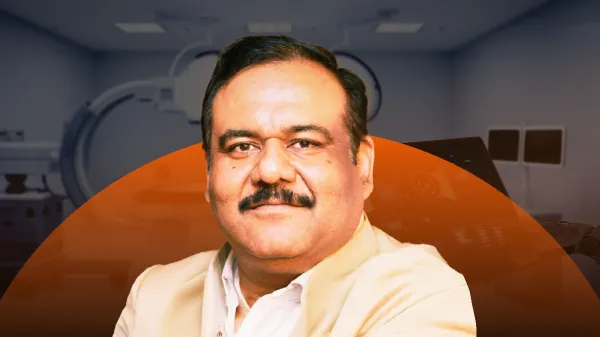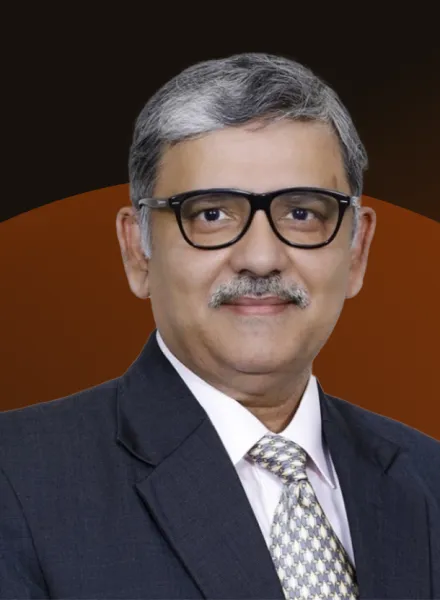The Role of Professional Management and Its Impact in Hospitals

By- Udayan Lahiry, Ex- MD, Medica Group of Hospitals
The integration of professional management in hospitals has led to transformative changes in healthcare delivery. Historically, hospitals have been managed by physicians whose primary focus was on care provision rather than efficient operations. However, in India, over the last three decades, the demand for quality and efficiency has skyrocketed.
People are more aware of their health and their rights than ever before. Governments have come up with more regulations, and medical cases going to courts has become very common. In this ever-changing scenario, hospitals have increasingly recognized the value of professional management.
The Shift to Professional Management
Professional managers bring business, financial, governance, and operational expertise to healthcare, promoting a culture of efficiency, patient-centered care, and strategic growth. This shift has profoundly impacted several aspects of hospital operations, including financial sustainability, quality of care, patient satisfaction, and workforce management.
When I joined the two-year Hospital & Healthcare Management programme of IIHMR, Jaipur, the career development in this field of management and career progression for a non-medical graduate seemed as blurred as the road on a hill station with extensive fog. The future was not visible in any sense, and there was great resistance to non-medical postgraduates aspiring to work in hospitals. Over time, however, it became clear that professionally trained management individuals have greatly contributed to bringing efficiencies in hospital management, giving clinicians the time and mental space to focus on clinical care. This, in turn, has led to improved clinical outcomes and patient satisfaction. The advent of private equity players in the private hospital investment arena has further pushed the way for professionally managed hospitals.
Financial Performance and Cost Optimization
One of the most visible impacts of professional management in hospitals is improved financial performance. Healthcare costs have been rising globally, placing enormous pressure on hospitals to keep treatment costs affordable. Professional managers bring in budgeting, cost control, and revenue cycle management, helping hospitals optimize resources. By employing strategic planning and financial forecasting, areas are identified where costs can be cut without compromising patient care.
Negotiating better rates with suppliers, finding ways to minimize waste, and improving inventory management all save significantly. Transparency in billing and standardized workflows also help save time while building confidence among patient families.
Workforce Management and Talent Retention
The most critical pillar in the delivery of quality healthcare is the workforce. Scientifically developed processes for forecasting, recruiting the right talent, training, and ensuring motivation for the workforce are key functions that should be a major focus for management. This is essential for developing and retaining talent in healthcare organizations.
Innovation and Technology in Healthcare
Innovation in healthcare technology is ongoing and rapidly changing. Being abreast of the latest advancements in technology, which leads to better recovery rates, is imperative for hospitals to remain relevant in the healthcare landscape. Innovation is not limited to medical technology but also extends to improved workflows and processes, making it more comfortable for patients to seek treatment, while also making healthcare cost-effective and accessible.
The COVID-19 pandemic was a tumultuous time for both healthcare professionals and those seeking healthcare. However, we witnessed the flexibility of hospital operations and their ability to embrace significant changes in their processes to continue providing treatment to patients during those challenging times.
Regulatory Compliance and Risk Management
Hospitals operate in a highly regulated environment, with stringent standards related to patient privacy, medical practices, and safety. Professional managers ensure that hospitals comply with these regulatory requirements, thus reducing the risk of penalties and safeguarding the hospital’s reputation. By implementing comprehensive risk management strategies, potential threats, such as data breaches or patient safety risks, are mitigated.
Compliance with various government-regulated norms is essential in ensuring safety and quality care delivery. These norms, related to building structures and fire and safety rules, are complex and crucial to modern-day hospital management. Adherence to accreditations such as NABH (National Accreditation Board for Hospitals), NABL (National Accreditation Boards for Testing and Calibration Laboratories), and JCI (Joint Commission International) has significantly impacted the improvement of quality healthcare delivery in India. These clear guidelines ensure patient safety and quality care, which has become a major responsibility for hospital management.
Conclusion
The impact of professional management in hospitals is profound, driving improvements in financial sustainability, quality of care, patient satisfaction, workforce management, operational efficiency, and maintaining high standards of governance and compliance. The role of hospital management is to delicately balance the interests of patients, doctors, staff, the community, and shareholders. As healthcare becomes increasingly complex, the demand for skilled managers who can navigate these challenges will continue to grow. By aligning healthcare delivery with business principles and prioritizing patient-centered care, professional managers ensure that hospitals operate efficiently and effectively, ultimately benefiting patients, staff, and communities.
Leading Hospital Management Courses in India
Some of the leading hospital management courses run in the country are:
IIHMR, Jaipur
AIIMS, New Delhi
AFMC, Pune
TISS, Mumbai
ASCI, Hyderabad
Devi Ahilyabai University, Indore
Amity University, Gurgaon
Manipal University, Manipal
PGIMER, Chandigarh
CMC Vellore
SGPGIMS, Lucknow
IIM, Kolkata
About the Author: The author has studied and trained at St. Stephen's College, Delhi, IIHMR, Jaipur, and the School of Public Health, University of North Carolina. With extensive experience in all spheres of hospital management over the last three decades, he has been responsible for building 15 hospitals across the country from the ground up. His last assignment was as the Managing Director of Medica Group of Hospitals, Kolkata.
Stay tuned for more such updates on Digital Health News





























